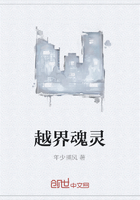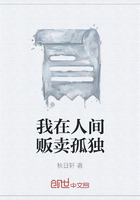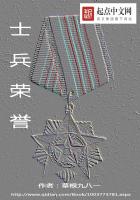Then came the morning of the day on which he was to arrive, and his coming was for the first time spoken openly of at breakfast.
'How is Arthur to be brought from the station,' asked old Mrs Fletcher.
'I'm going to take the dog-cart,' said Everett.'Giles will go for the luggage with the pony.He is bringing down a lot of things;--a new saddle and gun for me.' It had all been arranged for her, this question and answer, and Emily blushed as she felt that it was so.
'We shall be glad to see Arthur,' said young Mrs Fletcher to her.
'Of course you will.'
'He has not been down here since the Session was over, and he has got to be quite a speaking man now.I do so hope he'll become something some day.'
'I am sure he will,' said Emily.
'Not a judge, however.I hate wigs.Perhaps he might be Lord Chancellor in time.' Mrs Fletcher was not more ignorant than some other ladies in being unaware of the Lord Chancellor's wig and exact position.
At last he came.The 9am express for Hereford,--express, at least, for the first two or three hours out of London,--brought passengers for Wharton to the nearest station at 3pm, and the distance was not above five miles.Before four o'clock Arthur was standing before the drawing-room fire, with a cup of tea in his hand, surrounded by Fletchers and Whartons, and being made much of as the young family member of Parliament.But Emily was not in the room.She had studied her Bradshaw, and learned the hours of the trains, and was now in her bedroom.He had looked around the moment he entered the room, but had not dared to ask for her suddenly.He had said one word about her to Everett in the cart, and that had been all.She was in the house, and he must, at any rate, see her before dinner.
Emily, in order that she might not seem to escape abruptly, had retired early to her solitude.But she, too, knew that the meeting could not be long postponed.She sat thinking of it all, and at last heard the wheels of the vehicle before the door.She paused, listening with all her ears, that she might recognize his voice, or possibly his footstep.She stood near the window, behind the curtain, with her hand pressed to her heart.She heard Everett's voice plainly as he gave some directions to the groom, but from Arthur she heard nothing.Yet she was sure that he was come.The very manner of the approach and her brother's word made her certain that there had been no disappointment.She stood thinking for a quarter of an hour, ****** up her mind how best they might meet.Then suddenly, with slow but certain step, she walked down into the drawing-room.
No one expected her then, or something perhaps might have been done to encourage her coming.It had been thought that she must meet him before dinner, and her absence till then was to be excused.But now she opened the door, and with much dignity of mien walked into the middle of the room.Arthur at that moment was discussing the Duke's chance for the next session, and Sir Alured was asking with rapture whether the Conservative party would not come in.Arthur Fletcher heard the step, turned round, and saw the woman he loved.He went at once to meet her, very quickly, and put out both his hands.She gave him hers, of course.There was no excuse for her refusal.He stood for an instant pressing them, looking eagerly into her sad face, and then he spoke.'God bless you, Emily!' he said.'God bless you!' He had thought of no words, and at the moment nothing else occurred to him to be said.The colour had covered all his face, and his heart beat so strongly that he was hardly his own master.
She let him hold her two hands, perhaps for a minute, and then, bursting into tears, tore herself from him, and, hurrying out of the room, made her way again into her own chamber.'It will be better so,' said old Mrs Fletcher.'It will be better so.Do not let anyone follow her.'
On that day John Fletcher took her out to dinner, and Arthur did not sit near her.In the evening he came to her as she was working close to his mother, and seated himself on a low chair close to her knees.'We are all glad to see you; are we not, mother?'
'Yes, indeed,' said Mrs Fletcher.Then, after a while, the old woman got up to make a rubber at whist with the two old men and her elder son, leaving Arthur sitting at the widow's knees.She would willingly have escaped, but it was impossible that she should move.
'You need not be afraid of me,' he said, not whispering, but in a voice which no one else could hear.'Do not seem to avoid me, and I will say nothing to trouble you.I think that you must wish that we should be friends.'
'Oh, yes.'
'Come out, then, to-morrow, when we are walking.In that way we shall get used to each other.You are troubled now, and I will go.' Then he left her, and she felt herself to be bound to him by infinite gratitude.
A week went on and she had become used to his company.A week passed and he had spoken no word to her that a brother might not have spoken.They had walked together when no one else had been within hearing, and yet he had spared her.She had begun to think that he would spare her altogether, and she was certainly grateful.Might it not be that she had misunderstood him, and had misunderstood the meaning of them all? Might it not be that she had troubled herself with false anticipations? Surely it was so; for how could it be that such a man should wish to make such a woman his wife?
'Well, Arthur?' said his brother to him one day.
'I have nothing to say about it,' said Arthur.
'You haven't changed your mind?'
'Never! Upon my word, to me, in that dress, she is more beautiful than ever.'
'I wish you would make her take it off.'
'I dare not ask her yet.'
'You know what they say about widows generally.'
'That is all very well when one talks about widows in general.
It is easy to chaff about women when one hasn't got any woman in one's mind.But as it is now, having her here, loving her as Ido,--by Heaven! I cannot hurry her.I don't dare ask to speak to her after that fashion.I shall do it in time, I suppose;--but I must wait till the time comes.'















